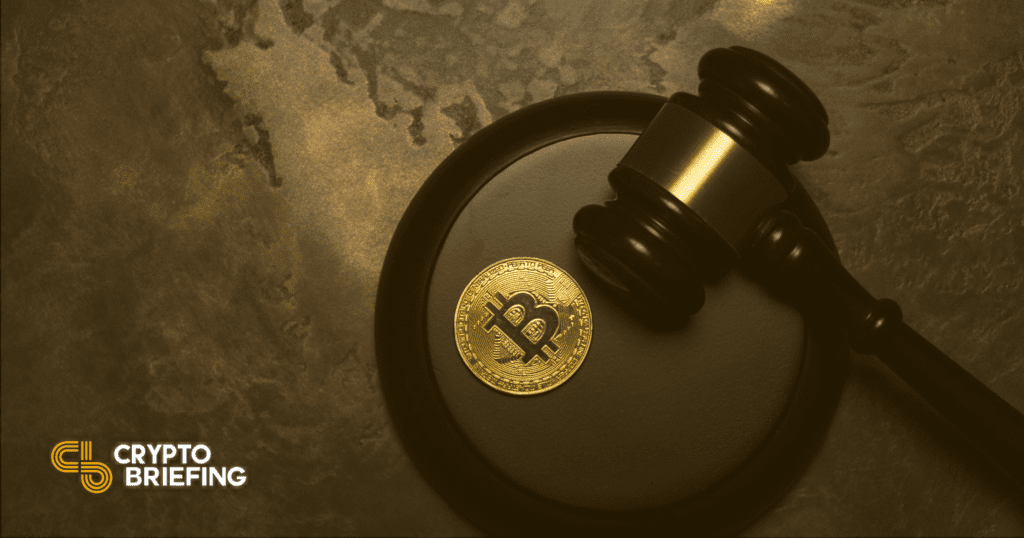
Shutterstock image by Yuri Shebalius
El Salvador Opposition Party Sues to Block Bitcoin Legislation
An opposition party in El Salvador has filed a lawsuit against the government for making Bitcoin legal tender.
The Farabundo Martí National Liberation Front (FMLN) party in El Salvador is backing a public lawsuit against the government to abolish the Bitcoin legal tender law for being “unconstitutional.”
El Salvador Faces Bitcoin Battle
After international monetary organizations, an El Salvadorian opposition party is the newest challenger to the Bitcoin law.
Citizens of El Salvador led by opposition party FMNL have moved the Constitutional Chamber of the Supreme Court of Justice (CSJ) against the new Bitcoin legal tender law, Spanish news outlet El Mundo reported Monday.
According to the FMLN party’s deputy Jaime Guevara, the Bitcoin law has “no legal basis” and is formed “to loot people’s pockets, it is tax-exempt, they want to force us to trade.”
a new meme fiat economists are spreading is that a) El Salvador's law (which is unimplemented – many gaps to be filled in) is guaranteed to coerce merchants nationwide to adopt Bitcoin, and b) that regular Bitcoiners are somehow morally responsible for this
— nic carter (@nic__carter) June 17, 2021
Óscar Artero, one of the lead plaintiffs in the case, stated that the law was passed without careful consideration and legal thinking.
President Nayib Bukele’s New Ideas party currently holds 56 out of 80 seats of the country’s parliament while FMNL has four. The law to make Bitcoin legal tender was passed with a 62/80 vote.
The El Mundo report also cited another rumor rampant in El Salvador that the government secretly wants to ban the law. According to an expert lawyer in the country, Enrique Anaya, the President is unprepared to implement the law and is thus looking for ways to roll back through invisible support to the opposition. Guevara denied colluding with the government on this.
The Spanish report added survey results from a corporate alliance in which eight out of ten participants voted against the government’s decision.
A Groundbreaking Law for Bitcoin
From day one of passing the law, the government has faced opposition from international organizations like the IMF. World Bank denied technical assistance to it as well. This is a setback for the country that relies heavily on economic assistance from these organizations.
World Bank MUST accept #Bitcoin from El Salvador, according to its founding charter (Section 12 of Article V)
– Forbes pic.twitter.com/oUZH32gBbs— Bitcoin Archive (@BTC_Archive) June 18, 2021
Nevertheless, the payment firm Strike leading the adoption is positive about the adoption. In a recent podcast with Peter McCormack, Jack Mallers, the CEO of Strike, confirmed the support of the top five banks and two biggest cashpoint distributors in El Salvador. He also announced plans to phase out USDT payments for Bitcoin.
An El Salvadorian development bank has also agreed to provide technical help to the government to implement the new law. Sources on social media reported 1,000 Bitcoin ATMs being imported to El Salvador by Crypto Matic.
Still, reports of internal resistance clearly depict the pandemonium El Salvador has created through the iconic law. Its success or failure is critical in setting a precedence for other South American countries like Paraguay looking to follow El Salvador.

 Earn with Nexo
Earn with Nexo